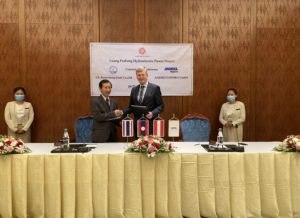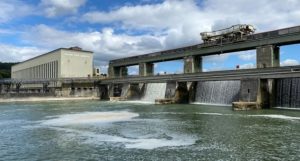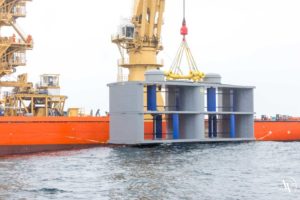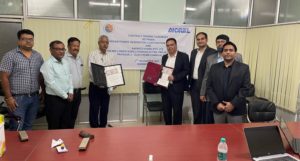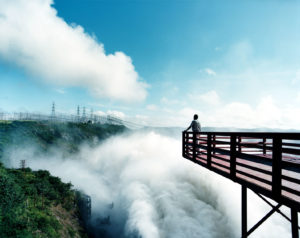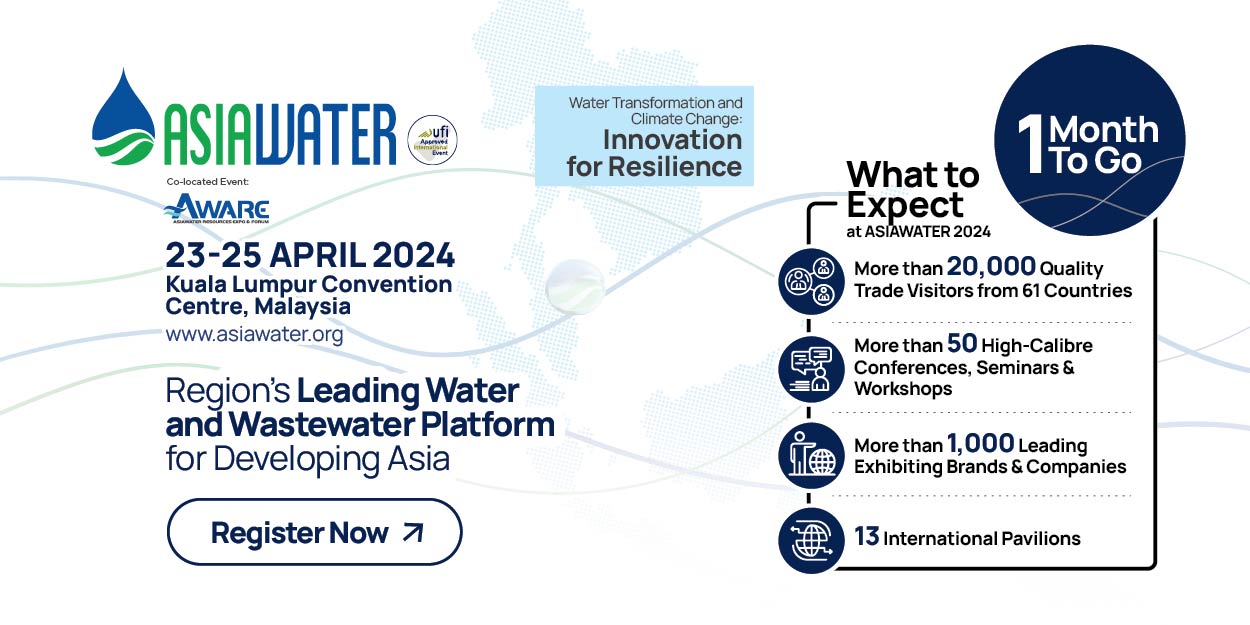River Turbines On Line
Near the German town of St. Goar on the river Rhine, KSB Aktiengesellschaft has put two river turbines into operation. These convert the energy of the river water into electric power and feed that into the power supply system. To do this, there is no need for any water to be impounded or diverted.
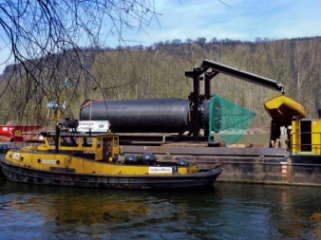
Installation of a river turbine made by KSB in an arm of the river Rhine at St. Goar.(Photo: KSB)
Following the successful operation of the two prototype turbines anchored to the river bed downstream from St. Goar, KSB now wants to prepare the newly developed power generators for commercial use. “We believe in a type of power supply that aims at economic effectiveness, reliability of supply and ecological compatibility all at once,” said Prof. Dr. Dieter-Heinz Hellmann, member of the KSB AG Board of Management. And he added that with the development of the river turbine, his company now was in a position to offer a new means of generating power within the scope of “small hydropower” that is not only clean but also capable of providing base load.
The project is being supported by the Ministry of Environment, Forestry and Consumer Protection of the German Federal State of Rhineland-Palatinate. Minister Margit Conrad travelled to Frankenthal specially to attend the commissioning ceremony where she was asked to give the starting signal for the feed-in of electricity controlled from the company headquarters. Conrad acknowledged the pilot installation set up for the purpose of testing two river turbines designed to generate power without affecting climatic conditions or the environment. She said the two turbines were the latest of KSB AG’s efforts to supply the market with innovative products. “The river turbine pilot installation is a good example of how, through the use of cutting-edge technology, a body of naturally running water can be utilised in a highly efficient manner, yet without harming the fish population or getting in the way of passing ships.”
In Germany, hydropower is the second most important regenerative energy, only to be surpassed by wind power. KSB believes that the hydropower share offers potential for further growth. In Germany alone, one could potentially generate hydropower in the range of 6.8 TWh per year – without cross-structures, i.e. without major changes to the natural landscape. The German Federal Government supports power stations of this type with a total output of less than 500 kW by paying a feed-in compensation in the amount of 12.67 eurocents per kWh. However, KSB also believes there is a market for “small hydropower” internationally, for example in China, India or Russia, where the problem of supplying rural areas with electricity calls for creative solutions.
Source: KSB SE & Co. KGaA


